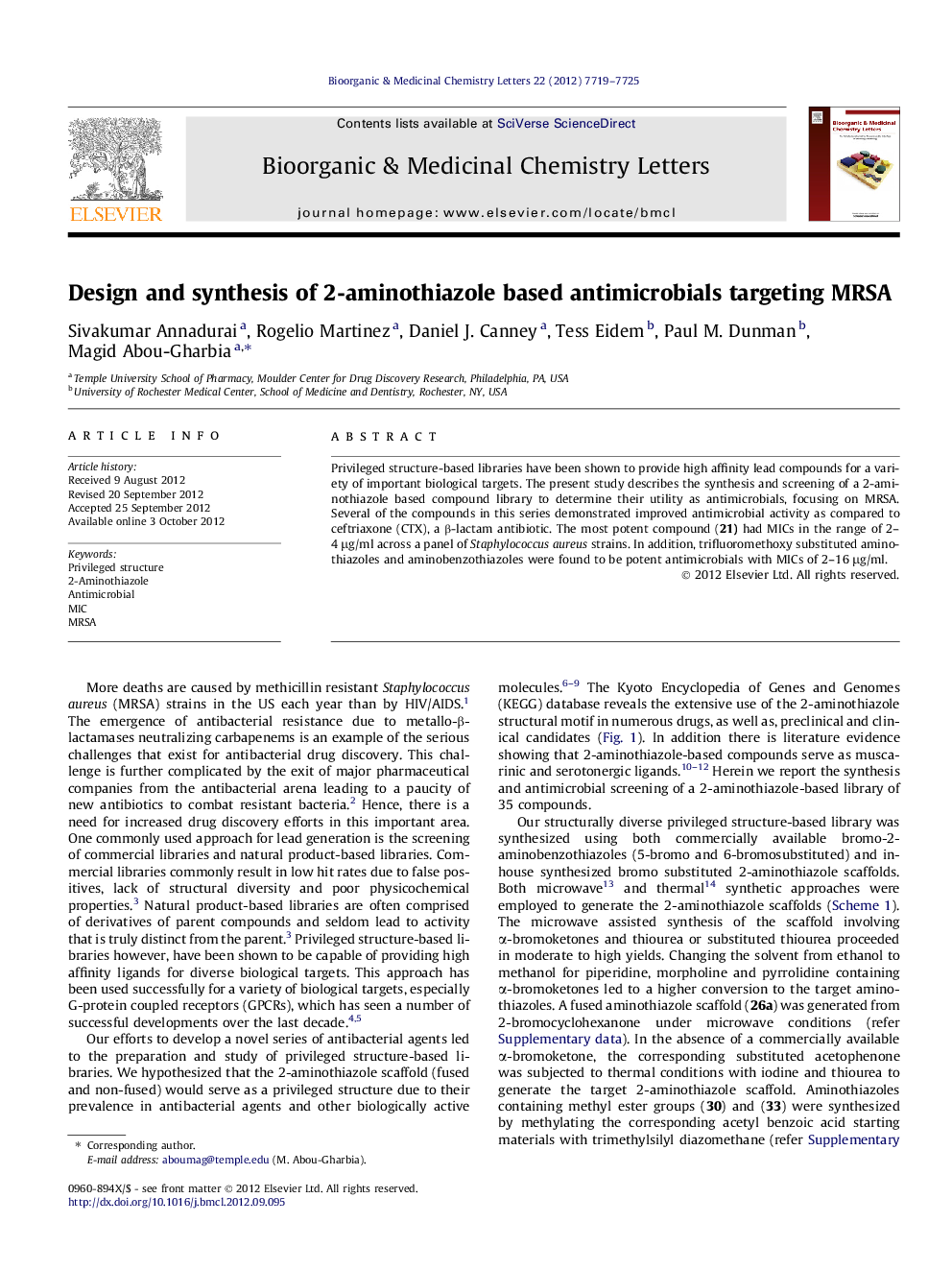| Article ID | Journal | Published Year | Pages | File Type |
|---|---|---|---|---|
| 10594302 | Bioorganic & Medicinal Chemistry Letters | 2012 | 7 Pages |
Abstract
Privileged structure-based libraries have been shown to provide high affinity lead compounds for a variety of important biological targets. The present study describes the synthesis and screening of a 2-aminothiazole based compound library to determine their utility as antimicrobials, focusing on MRSA. Several of the compounds in this series demonstrated improved antimicrobial activity as compared to ceftriaxone (CTX), a β-lactam antibiotic. The most potent compound (21) had MICs in the range of 2-4 μg/ml across a panel of Staphylococcus aureus strains. In addition, trifluoromethoxy substituted aminothiazoles and aminobenzothiazoles were found to be potent antimicrobials with MICs of 2-16 μg/ml.
Related Topics
Physical Sciences and Engineering
Chemistry
Organic Chemistry
Authors
Sivakumar Annadurai, Rogelio Martinez, Daniel J. Canney, Tess Eidem, Paul M. Dunman, Magid Abou-Gharbia,
